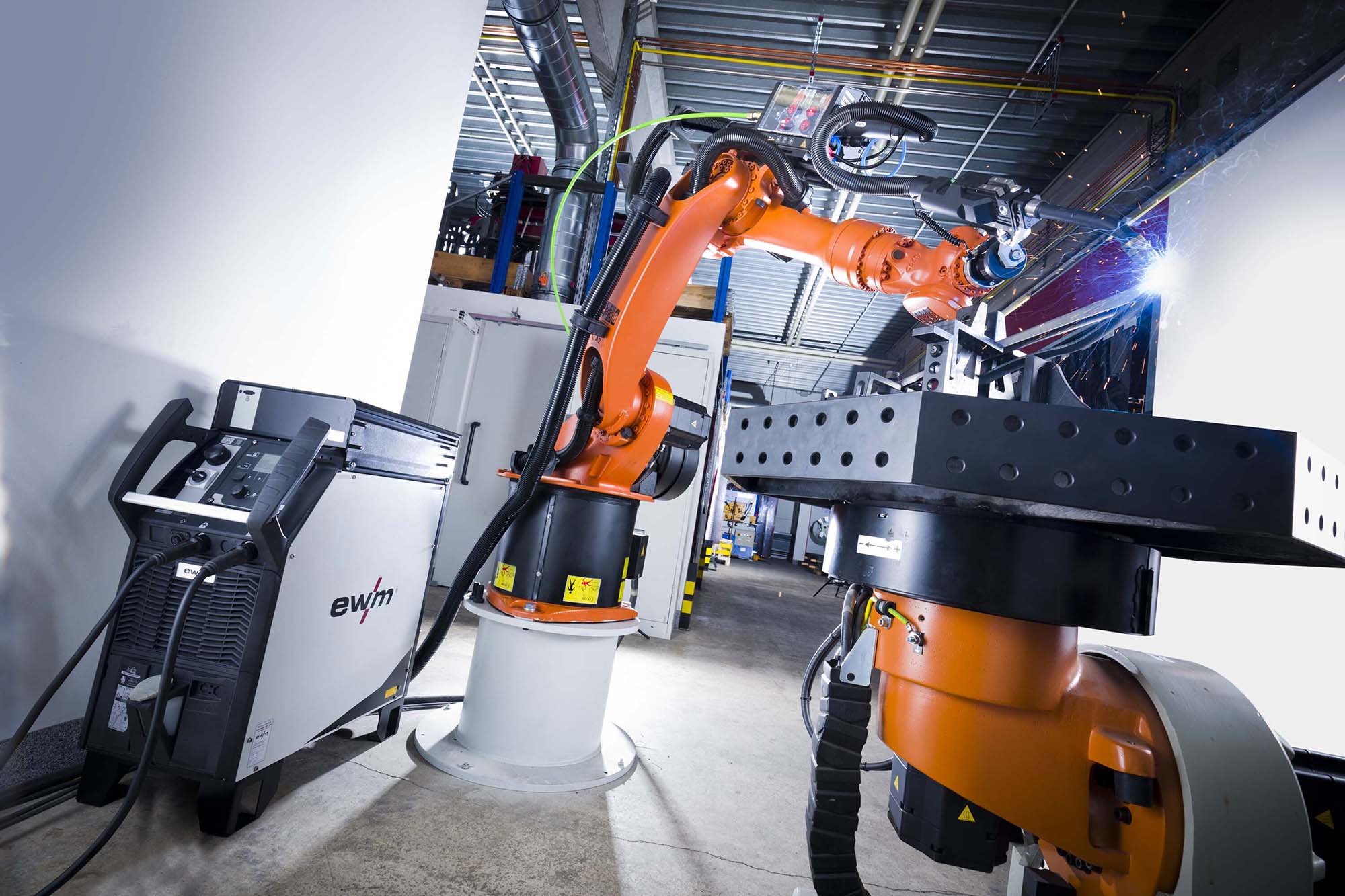
EWM is taking a holistic approach to shaping the future of welding technology. The full-service provider from the Westerwald region relies on intelligent automation, digital networking and sustainable process solutions. In this interview, Thomas Häusle, Chief Business Officer (CBO) at EWM, explains how an industry in transition can master technological, ecological and personnel challenges.
Welding technology has developed rapidly in recent years – from automation to AI-supported systems. How do you assess the current developments in the welding market and which trends do you think are the most influential?
The industry is currently undergoing a profound transformation. Welding technology is becoming increasingly intelligent – through automated processes, digital networking and the integration of AI. This is no longer just about robotics, but about the systemic further development of the entire process.
With applications such as EWM React, complex tasks can be carried out in a material-specific and reproducible manner – regardless of the operator’s level of experience. This increases process reliability and reduces errors. Digitalization provides a further boost: the networking of all components – from the power source to quality control – opens up new possibilities for monitoring and optimization.
The use of artificial intelligence is particularly forward-looking. It evaluates process data, recognizes patterns and provides targeted support for parameterization. This turns experience into a systematically usable resource. AI should make work easier, not replace it. The aim remains to achieve the highest quality efficiently and reliably – for every material and every application.
Sustainability is an increasingly important topic. To what extent do energy efficiency and emissions reduction play a role in the welding industry, and how is EWM responding to these challenges?
Energy efficiency and reduced emissions – especially welding fumes – are key factors in modern welding technology. They not only influence the environmental balance, but also economic efficiency and occupational safety.
EWM takes a holistic approach here. Our modern inverter power sources are particularly energy-efficient and noticeably reduce power consumption compared to conventional devices – without compromising on welding quality or process stability. This is complemented by sophisticated cooling systems that minimize heat loss and at the same time extend the service life of the devices.
But sustainable technology does not end at the device: it begins with the right process selection, continues with intelligent control and finds expression in the digital networking of the entire welding infrastructure. Systems such as EWM Xnet create transparency regarding consumption and enable targeted optimization. Integrated welding fume extraction systems are also part of our standard equipment – because sustainable welding always means health protection.

© EWM
The shortage of skilled workers is a major challenge for many industries, including welding technology. How do you see the impact on the market and what solutions does EWM offer to meet the demand for qualified specialists and drive innovation at the same time?
The industry is facing a paradigm shift – both technologically and culturally. To counter the shortage of skilled workers, we at EWM are pursuing four central approaches: Firstly, we are increasing the attractiveness of the job profile through modern working environments and flexible development paths. Secondly, we rely on practical and digitally supported training formats – from virtual welding trainers to AI-supported error analysis. Thirdly, we make targeted use of automation to relieve the burden on skilled workers and direct their focus on value-adding tasks. And fourthly, we see digitalization as the key to increasing efficiency: with EWM Xnet, we network the entire fleet – and translate data into concrete recommendations for action.
Welding & Cutting 2025 Hall 5, Stand 5E29
Web:
www.ewm-group.com




